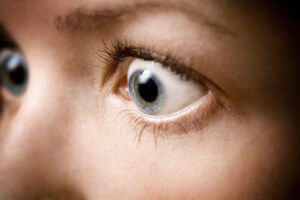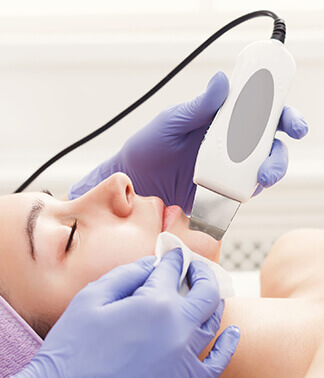Thyroid Eye Disease

What is Thyroid Eye disease (TED)?
Thyroid Eye Disease (TED) is an extremely common inflammatory disorder of the eyes. Although it is usually seen in patients that have auto-immune Thyroid diseases such as Graves Disease and Hahimotos Disease, it can also be seen in people that have normal thyroid function.
What are the Signs and Symptoms of TED?
The hallmark sign of TED is Proptosis or bulging eyes. Early signs and symptoms are chronically red, inflamed or tearing eyes.
As TED causes the muscles and fatty tissue surrounding the eyeball become inflamed. In early and mild cases the swelling can cause bagginess and fat pockets to appear in the eyelids. As the disease progresses, the eyeballs can bulge giving a “bug eye” look. The upper and lower eyelids retract exposing more of the eyeball causing tearing and redness.
In more severe cases the muscles that move the eyeballs become thickened and stiff and patients mar experience temporary or permanent double vision. Rarely, in very severe cases the inflammation can put pressure on the optic nerve (the main seeing nerve of the eye) and vision loss or even blindness can occur.
TED typically affects both eyes and tends to run it’s course over a 6-24 month period. People that smoke or who have had radioactive iodine to treat their Thyroid tend to have a higher incidence of TED.
What should I do if I think I have TED?
If you have any of these symptoms you should be seen by an Ophthalmologist. An experienced surgeon will do several measurements and may send you for bloodwork or get a CT scan or MRI to help make the diagnosis. Patients should also be seen by an Endocrinologist to determine if she or he need their Thyroid treated.
How is TED Treated?
In many cases TED goes away on its own. Symptomatic treatment such as lubricating eye drops and cool compresses can help. Drinking a lot of water and avoiding salty, fatty and processed foods can be helpful to reduce swelling. There are some studies that suggest supplementing with the mineral Selenium can be helpful. Smoking cessation is also important.
In more severe cases patients can be treated with steroids. In general Intravenous (IV) steroids are more effective than oral steroids. Steroids can also be injected directly into the eye socket.
Radiation therapy historically has been effective in the treatment of more severe disease.
What about Surgery for TED?
Patients that don’t respond to steroids or radiation may be candidates for surgery. Orbital decompression surgery is a complex surgical procedure that should be performed by an experienced Oculoplastic Surgeon. The bony walls of the eye socket are removed to allow more space for the inflamed orbital tissue. In less aggressive Orbital decompression orbital fat may be removed leaving the bony walls intact. Patients that have double vision due to TED frequently need surgery to move the muscles to align the eyes.
Retraction of the upper or lower eyelid is another common complication of TED that can be corrected by surgery. Upper eyelid retraction can be performed by weakening the lifting muscle while lower eyelid retraction may require the use of grafts to effectively lengthening the eyelid.
What is Tepezza?
Tepezza is a new biologic agent that was FDA approved in early 2020. Tepezza has shown to be highly effective at treating TED. It is an intravenous infusion that is given every 3 weeks for a total of 8 doses. It is generally well tolerated with the most common side effect being muscle cramps. Over 70% of patients that received Tepezza had improvement in their eyeball bulging (proptosis) and more than 50% had their double vision improve.
What about Cosmetic Eyelid Surgery in TED?
Many patients develop excess skin, bags or fatty deposits as a result of Thyroid Eye Disease. Once the disease is quiet, cosmetic surgery can safely be performed to restore the patients appearance and self confidence.
Dr. Schlessinger is an Oculoplastic Surgeon with 25 years of experience and has treated many patients with Thyroid Eye Disease. If you have further questions or would like an appointment please call 516-496-2122 or click here to send us a message.



